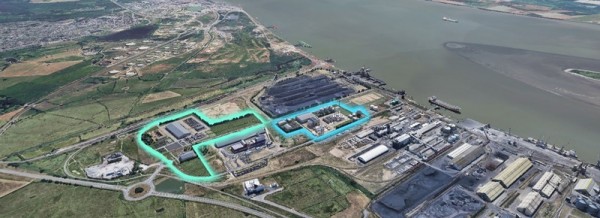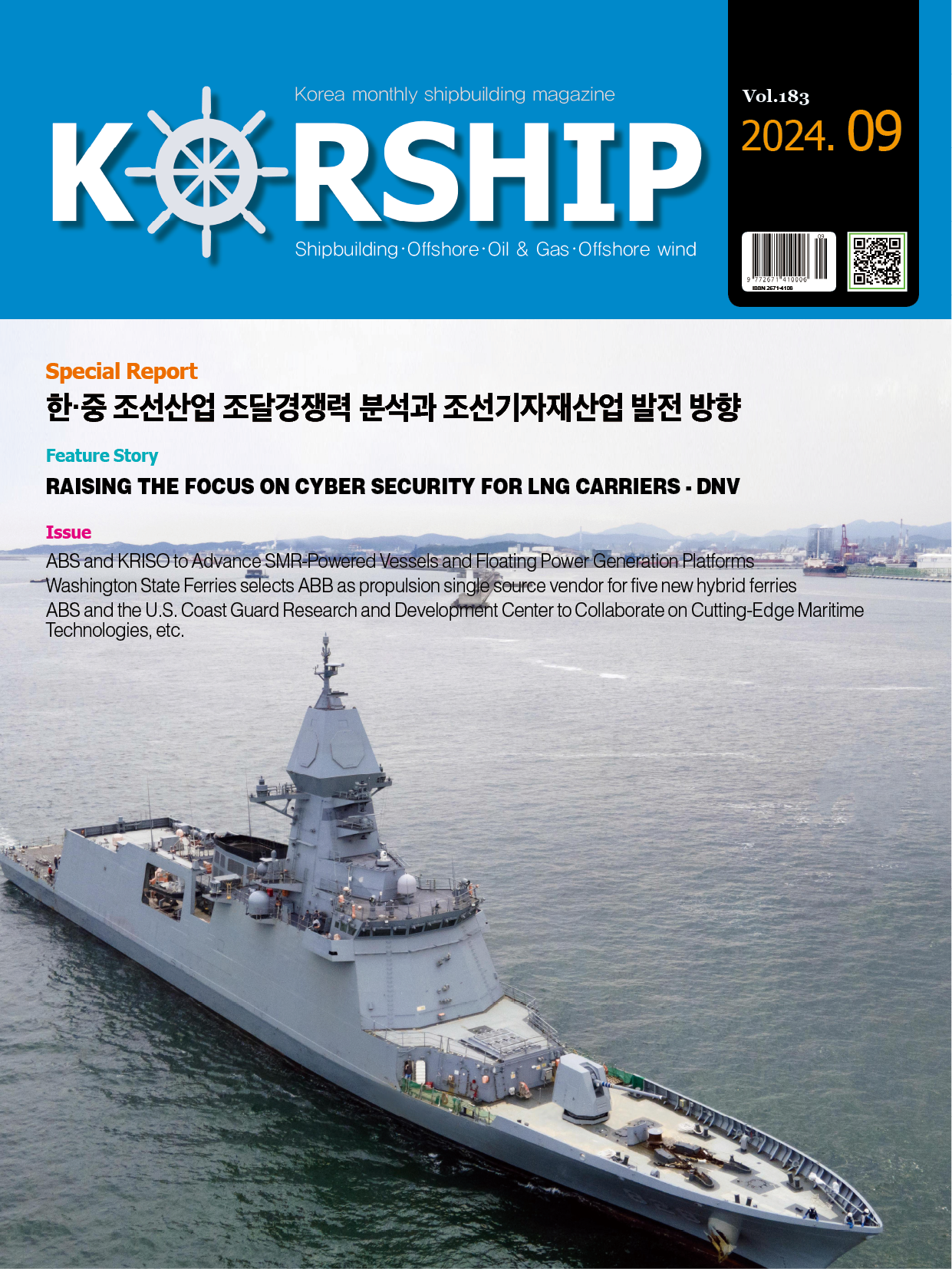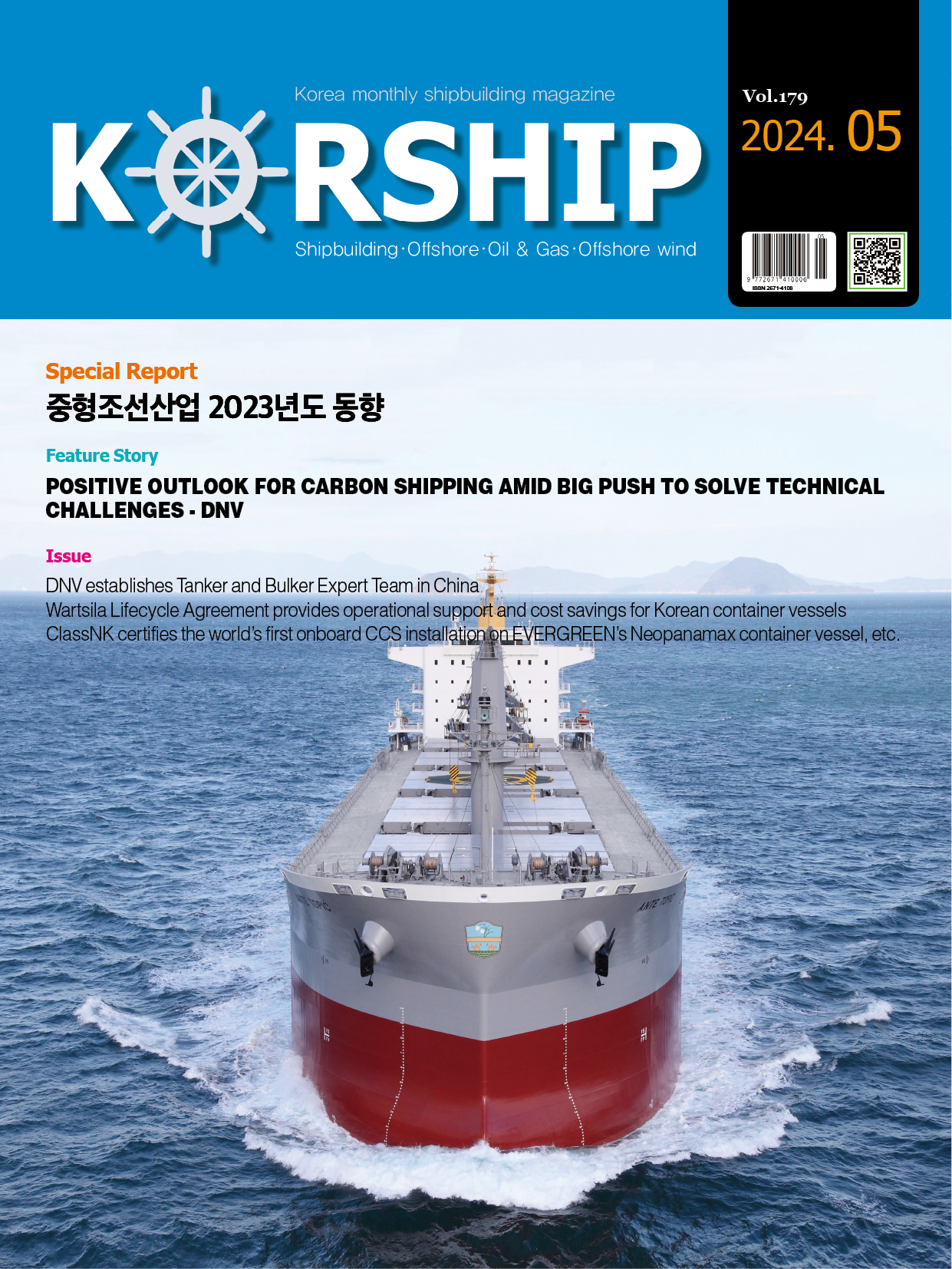Feature Story In France’s Nantes Saint-Nazaire Port area: Lhyfe and Elyse Energy pla…
페이지 정보
작성자 최고관리자 댓글 0건 조회 392회 작성일 24-11-05 20:18본문
In France’s Nantes Saint-Nazaire Port area: Lhyfe and Elyse Energy plan to produce e-methanol from renewable green hydrogen, to decarbonise maritime transport.
- Creation of a new decarbonised energy chain at a port in Western France, with the support of the local area
- Development of a solution to decarbonise shipping, which is responsible for 14% of CO2 emissions from transport in Europe.
Lhyfe (EURONEXT: LHYFE), one of the world’s pioneers in the production of green and renewable hydrogen*, and Elyse Energy, a European specialist in the production of low-carbon molecules, have announced that they plan to jointly develop the production of e-methanol** from green renewable hydrogen at the heart of the Loire estuary’s industrial and logistics port ecosystem. This project, known as Green Coast, is of major importance for the area and for the entire maritime transport sector, which is seeking to achieve decarbonisation.
A decarbonisation project in line with a key local ambition
Nantes Saint-Nazaire Port has been committed for several years to decarbonising its activities, which are still heavily dependent on fossil fuels. This transition to energies that are more respectful of the climate and the environment has become a requirement for competitiveness, and even survival, for European ports. This ambition is supported at all levels, in particular by the Pays de la Loire Region and the Saint-Nazaire Agglomération urban community, which are actively supporting the transition underway in the Nantes Saint-Nazaire industrial port area. Indeed, decarbonisation is stimulating the emergence of a new industrial fabric in the region, with European-scale projects creating new long-term jobs linked to these sectors. The Loire Estuaire Décarbonation ZIBaC programme will ensure consistency and the development of strong industrial synergies between the various decarbonisation projects in the estuary area.
The Green Coast project is part of the Loire Estuaire Décarbonation pathway.
In late 2023, Nantes Saint-Nazaire Port selected Lhyfe to set up an industrial production and distribution operation for green hydrogen*. At the time, Lhyfe presented its plans to build an industrial unit with a renewable green hydrogen production capacity of up to 85 tonnes per day (installed electrolysis capacity of 210 MW), in Montoir-de-Bretagne, to the north of the Multivrac terminal, by 2028.
Nearby, Elyse Energy has positioned itself to produce renewable fuel in the industrial port zone. A synergy between these two project leaders led to the signing of an exclusive agreement to study the feasibility of producing e-methanol** from Lhyfe’s green hydrogen, in order to decarbonise maritime transport. The rest of the production would be used to decarbonise mobility and industry locally (see the financial press release published last July).
This project, called Green Coast, will be located at the Montoir-de-Bretagne industrial port hub, near the quayside.
Elyse plans to produce 150,000 tonnes of e-methanol a year at the site.
Green Coast, which fits in fully with the local industrial context, is part of the Loire Estuaire Décarbonation initiative, supported by France 2030 via the Low Carbon Industrial Zone or ZIBaC call for projects, and led by ADELE, which includes Saint-Nazaire Agglomération, the Estuaire & Sillon association of municipalities, the Pays de la Loire Region, Nantes Saint-Nazaire Port and the Association des Industriels Loire Estuaire (AILE).
The project is currently under development, and is subject to the granting of operating licences, building permits and financial investment decisions. The conclusions of the initial studies will be communicated during 2025.
location of Lhyfe in green and Elyse Energy in blue, in the Montoir-de-Bretagne industrial port zone. The synergy between the two units now forms the Green Coast project. Credit: Lhyfe and Elyse.
Decarbonising maritime transport with e-methanol produced from green hydrogen
Decarbonising maritime transport is a key challenge for achieving the dual objective of carbon neutrality and an exit from fossil fuels. The shipping sector, which handles 80% of world trade, accounts for 14% of CO2 emissions from transport in Europe, and is firmly committed to decarbonisation, with several sustainable options for ship propulsion.
E-methanol** produced from renewable green hydrogen* is one of the keys to decarbonising this sector.
*Renewable green renewable hydrogen: more than 95% of the hydrogen produced today – so-called "grey" hydrogen – is derived from fossil fuels. “Renewable green” hydrogen, which is beginning to develop, is produced by electrolysis of water, and therefore requires two components: water and renewable electricity. Its production emits very little CO2 (1 kg of CO2 for 1 kg of green H2 compared with 10 kg of CO2 for 1 kg of grey H2). When this hydrogen is used, the water molecule reforms, emitting only water vapour. Lhyfe, a world pioneer in this technology, has been producing green hydrogen since 2021 and is encouraging the development of a virtuous value chain.
**E-methanol: Methanol, which is the most basic alcohol and a liquid at atmospheric pressure, is a molecule used in the manufacturing processes of many everyday products, such as cosmetics, medicines, resins, plastics, paints etc. Although methanol is currently produced almost exclusively from coal and natural gas, low-carbon alternatives have been emerging for several years, in particular e-methanol produced from hydrogen. The production of e-methanol involves using low-carbon hydrogen produced by electrolysis of water and carbon recycled from industrial processes. Elyse Energy is one of Europe's leading players in e-fuels.
Although e-methanol production is currently limited to a few thousand tonnes a year in Iceland, the sector is developing rapidly, with nearly 60 major industrial projects under construction around the world, notably in China, Sweden, Denmark, North America and France.
France has two major competitive advantages to support the emergence of e-methanol and turn it into a significant green reindustrialisation opportunity – a low-carbon electricity mix and integrated chemical platforms capable of providing the necessary skills and infrastructure. With nearly 600,000 tonnes of fossil methanol imported each year by French manufacturers, and growing demand from major players in the maritime sector for methanol-powered ships, e-methanol offers an opportunity to repatriate production while helping to establish a French industry of excellence.
Jean-Rémy Villageois, Chairman of the Management Board of Nantes Saint-Nazaire Port: “With 70% of its maritime traffic reliant on fossil fuels, Nantes Saint-Nazaire Port is at the centre of a profound change of model that is fully integrated into its strategy. Our company is focusing on the energies of tomorrow to meet the challenges of climate change. As a national energy hub, the Port of Nantes Saint-Nazaire, supported by the region’s economic and institutional players, has taken action on numerous fronts to accelerate its transition and become a low-carbon energy hub by 2050. The Green Coast project, led by Lhyfe and Elyse, adds a new brick to the decarbonisation of the Loire Estuaire industrial area, and also echoes the GO CO2 project to capture and recycle the unavoidable and biogenic CO2 emitted by industrial companies in Pays de la Loire and western France. Green Coast is fully in line with the decarbonisation targets set at European and national level, as are all the actions belonging to the roadmap we have collectively set ourselves to make a success of this transition.”
Tristan LUCAZEAU, President of ADELE: “The Loire Estuaire Décarbonation initiative, led by a group of industrial and public-sector players and steered by the ADELE association, aims to bring about ecological, energy and economic transition in the region, with a view to achieving carbon neutrality by 2050. Having won the Low Carbon Industrial Zone call for projects by ADEME and France 2030, Loire Estuaire Décarbonation builds on around twenty projects with the aim of accelerating the transformation of this industrial port area. The Green Coast project is fully in line with this process, through its capacity to massively decarbonise a major part of our economy, namely maritime transport.”
David Samzun, President of Saint-Nazaire Agglo: “We are proud of the history of industry in Saint-Nazaire. At the same time, we are aware of its heavy dependence on fossil fuels. Between the Loire estuary, the Brière marshes and the ocean, we know the beauty and fragility of our surroundings. There is an urgent need to protect these commons, and here too we want to put the power of industry at the service of ecology. That’s what we’ve achieved by becoming home to France’s first offshore wind farm, which is now supplying the Loire-Atlantique region with low-carbon energy. This is what we want to achieve tomorrow, together with our industrial and port partners, by responding to the Low Carbon Industrial Zone challenge. Encouraging innovation, decarbonising industry, inventing new value chains, gaining resilience and sovereignty. The challenge is to integrate economic and ecological approaches, and I’m delighted to see and support the Green Coast project, which is ideally located within the industrial ecosystem of our area.”
Christelle Morançais, President of the Pays de la Loire Region: "The decarbonization of our territory, particularly seaport activities, is a lever for attractiveness, industrial dynamism, and development for our region. As President of the Supervisory Board of the Grand Port and President of the Region, I am particularly proud to be able to count on regional gems like Lhyfe - alongside the Lyon-based company Elyse - to bring an innovative solution for maritime decarbonization. Our public-private collective is determined to pursue the ambition of achieving carbon neutrality by 2050. This project is a testament to the commitment of our companies to ecology, recognizing that they are moving forward to meet the challenges of innovation, green technologies, and progress to create decarbonized sectors that will make the Pays de la Loire attractive tomorrow."
Pascal Penicaud, CEO Elyse Energy: “Climate change is the challenge of the century. Scientists keep reminding us of this, report after report. The path is both simple and ambitious. To limit its effects and scale, we need to decarbonise all industries, and we need to do it now. We decided to create Elyse to be part of this fight. Our mission is to provide sustainable fuels that are adapted to existing infrastructure, heavy transport and industry. We are delighted to be joining forces with Lhyfe to fight this battle together, at the heart of the Nantes Saint-Nazaire industrial port area, with the Green Coast project. The e-methanol produced by the project will provide a local, low-carbon solution for the shipping industry, while drastically reducing emissions of atmospheric pollutants from ships and contributing to the region’s industrial vitality.”
Matthieu Guesné, Founder and CEO of Lhyfe: “This project, located at the heart of the Nantes Saint-Nazaire industrial port ecosystem, is a beacon of hope. There is an urgent need to move towards a more frugal consumer society, but also to put in place cleaner and safer solutions to decarbonise the uses that we cannot eliminate. E-methanol produced from green hydrogen is one of these solutions, which is particularly well suited to the shipping industry. At Lhyfe, we have been producing green hydrogen since 2021, in the Vendée region in particular, and already have four production sites in Europe. We have mastered this clean technology – our top priorities are the future of our children and the safety of our sites. We now want to put our experience at the disposal of the region, to contribute to the massive decarbonisation of maritime transport and, more broadly, of local industry and mobility. We know Saint-Nazaire well, having built our pioneering Sealhyfe platform there. Together with Elyse, and with the support of the region, we are proud to be leading this important project for the future.”
■ Contact: Lhyfe https://www.lhyfe.com/













